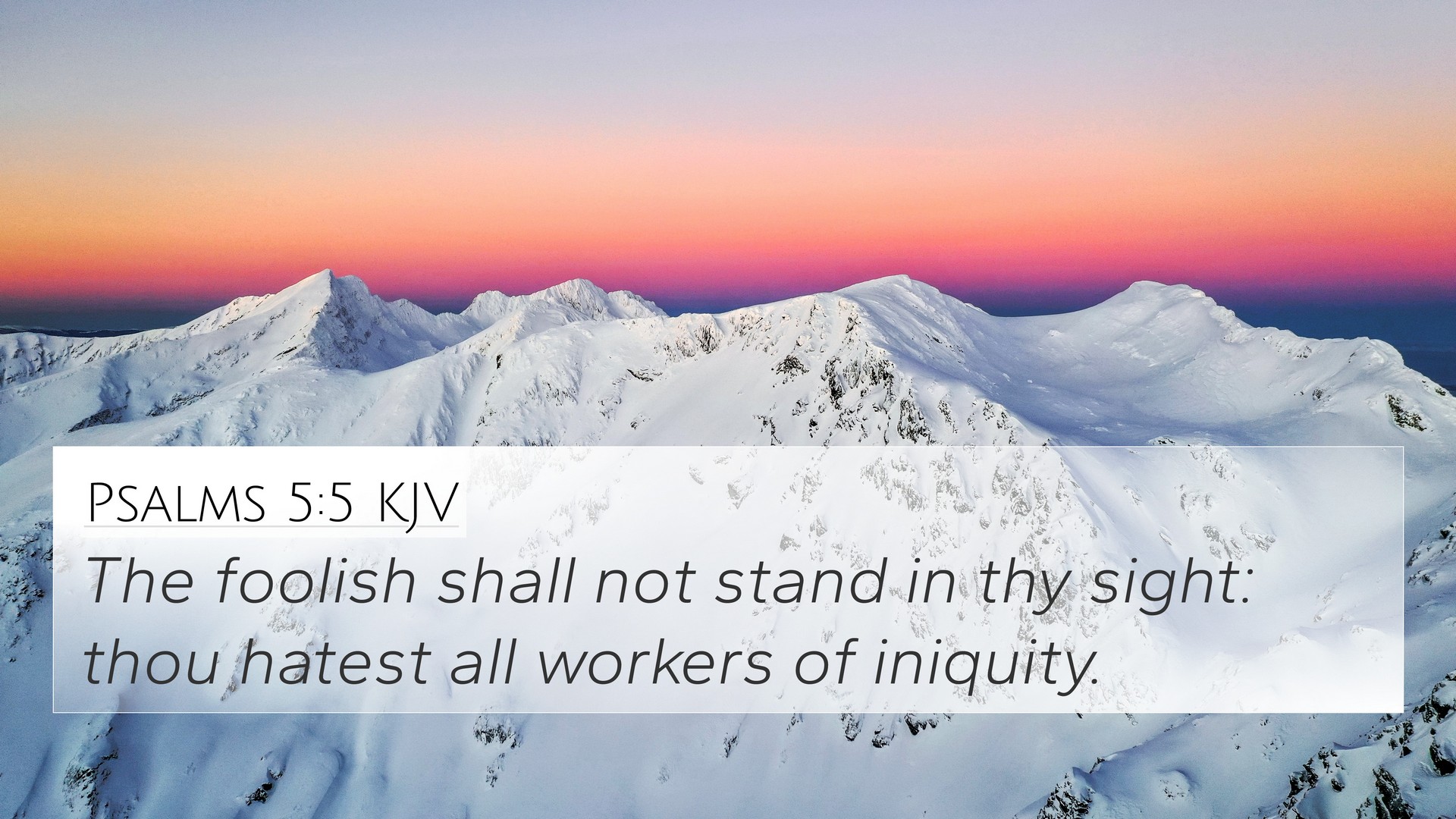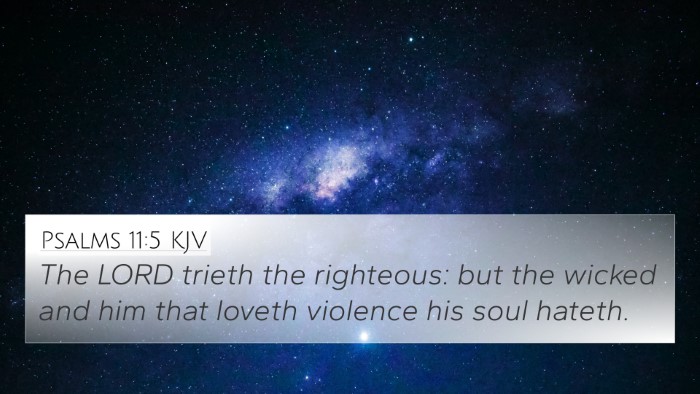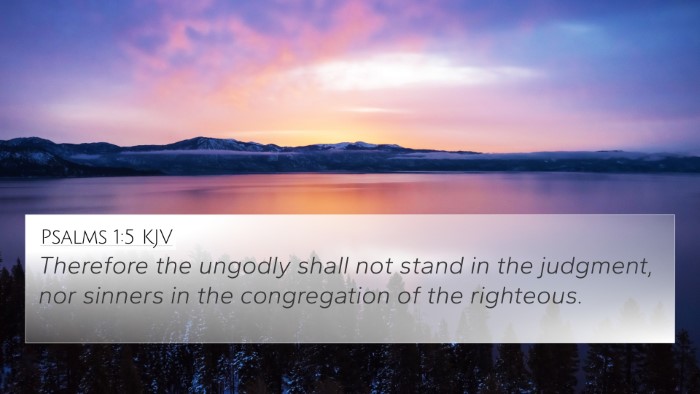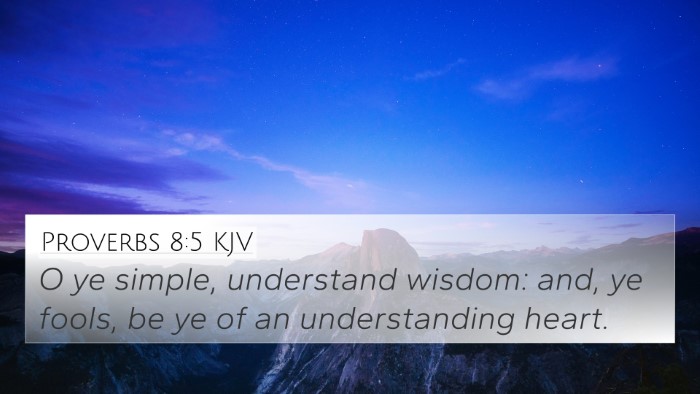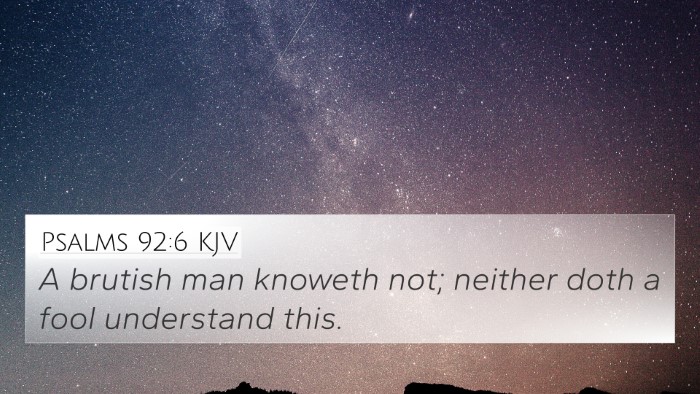Psalms 5:5 - A Comprehensive Analysis
The verse Psalms 5:5 states: "The foolish shall not stand in thy sight: thou hatest all workers of iniquity." This profound verse speaks volumes about God's character, His relationship with humanity, and the ultimate separation between righteousness and wickedness.
Understanding Psalms 5:5
This verse emphasizes a critical theme in the Book of Psalms: the divine rejection of wickedness. The application of this verse can be explored through insights from public domain commentaries:
-
Matthew Henry:
Henry explains that the "foolish" represents those who live in defiance of God's commands without regard for moral or ethical standards. The stark reality of their inability to stand before God implies their ultimate spiritual downfall. This highlights God's stance against sin and iniquity.
-
Albert Barnes:
Barnes notes that God’s hatred for workers of iniquity indicates a divine judgment reserved for those who actively commit evil. It starkly contrasts the supposed acceptance of sinners, underscoring that God’s holiness cannot tolerate sin.
-
Adam Clarke:
Clarke elaborates that the term "workers of iniquity" refers to habitual sinners who practice wrongdoing without repentance. He emphasizes the importance of recognizing the gravity of sin and understanding that divine favor cannot coexist with unrighteous behavior.
Thematic Connections and Cross-References
This verse creates a compelling dialogue within the scripture, aligning with various other biblical texts. Here are significant cross-references that resonate with the themes of Psalms 5:5:
- Psalm 11:5: "The LORD trieth the righteous: but the wicked and him that loveth violence his soul hateth." - This verse parallels the idea of God’s hatred towards wickedness.
- Proverbs 15:9: "The way of the wicked is an abomination unto the LORD: but he loveth him that followeth after righteousness." - It reflects the taste of God for righteousness over iniquity.
- Romans 1:18: "For the wrath of God is revealed from heaven against all ungodliness and unrighteousness of men." - Here, the New Testament emphasizes God's response to iniquity.
- Galatians 6:7: "Be not deceived; God is not mocked: for whatsoever a man soweth, that shall he also reap." - This indicates the principle of divine justice regarding sin.
- James 4:6: "But he giveth more grace. Wherefore he saith, God resisteth the proud, but giveth grace unto the humble." - This teaches humility before God, contrasting with the proud and wicked.
- Matthew 7:23: "And then will I profess unto them, I never knew you: depart from me, ye that work iniquity." - This reveals the ultimate rejection of the iniquitous by Christ.
- Isaiah 59:2: "But your iniquities have separated between you and your God." - Demonstrates the relational impact of sin against God.
Inter-Biblical Dialogue
The connections between Psalms 5:5 and other verses foster a deeper understanding of God's nature and humanity's moral responsibilities. The thematic dialogue is crucial for comprehending how the Old and New Testaments apply similar principles regarding the divine stance towards sin.
Tools for Bible Cross-Referencing
To further explore these connections, one can utilize tools such as:
- Bible Concordance
- Cross-reference Bible Studies
- Bible Reference Resources
- Bible Chain References
How to Use Bible Cross-References
When studying scripture, identifying connections can enhance understanding. Here are methods for engaging with cross-references:
- Use a Bible cross-reference guide to locate similar themes.
- Engage in comparative Bible verse analysis by reading parallel passages.
- Explore detailed cross-references between the Gospels and other scriptures.
Conclusion
In summary, Psalms 5:5 serves as a potent reminder of God's justice and the inevitable consequences of sin. By studying this verse alongside its cross-references, believers can harness a greater appreciation for the interconnectedness of Scripture, enriching their journey in faith and understanding God's will.
